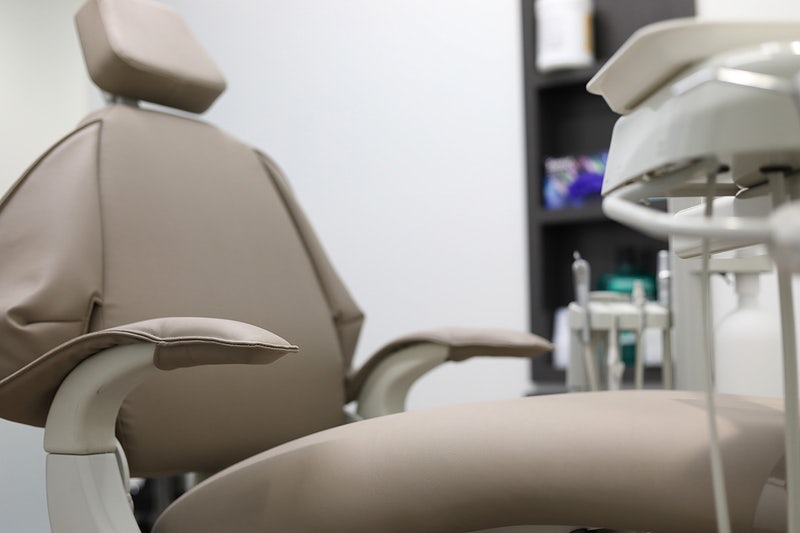What Are the Benefits & Drawbacks of Dental Travel? Here’s the 10 Big Ones!
Dental Tourism industry experts predict that the Dental Implants industry will be worth upwards of $10 billion globally by 2027.
That is how well-liked and in-demand dental implants have grown. And for a variety of reasons given that these fixtures have several advantages, most notably permanency. They may last 20-30 years or more and overall it’s considered to be a very highly successful dental procedure.
Dental Implants are the “gold standard” for replacing extracted or lost teeth, though of course they’re usually the most expensive type of dental procedure available in the marketplace. Dental Tourism itself has on a yearly basis markedly increased as a direct result of this fact, which to date has well justified the means, plus has well established a reliable path forward with respect to taking what’s now quite well known in social circles and in general dental nomenclature as a Dental Vacation.
And so, the most important information with respect to Dental Tourism is revealed in this article, along with also being balanced by advising some reasons why it also may not be the best choice for everyone.
Dental Tourism: What Is It?
According to market analysts, and as first referenced above, the presently $6 billion Dental Tourism market is expected to continue growing and just for Dental Implants purposes alone become an 11-figure worldwide industry (i.e. $10 billion or more) by 2027. The expense of getting dental work done in industrialized nations is one of the main factors for this development. Another is that elective dental work isn’t usually covered by dental insurance.
What Specifically is Dental Tourism, and Why are so many Dental Patients doing it Nowadays?
Traveling outside of one’s own country to get Dental Work done is well known as Dental Tourism. For instance, a citizen of the United States may go to Ecuador to have Dental Implants there. A New Zealander visiting Malaysia for oral surgery is yet another relevant example.
As is clearly apparent, the majority of “Dental Tourists” are from regions where medical expenses are rather expensive. The locations themselves are countries renowned for their affordable offerings.
Is Dental Work Safe to Perform in say, Latin America?
While there are always possible hazards involved for someone who lives outside of Latin America, this being such an incredibly mobile world nowadays, the chances of getting sick when traveling aren’t really much greater these days than contracting an illness while in one’s home country (i.e. the US). This is because, while naturally one of the biggest concerns anywhere in the world at present, is say, contracting Covid-19, though of course for those who are already vaccinated against it, as is universally required by most countries (i.e. again Ecuador) for quite some time now, it’s no longer usually any kind of life threatening or even highly concerning situation, in stark comparison to how it was prior to vaccination having become the norm across the globe.
The Benefits and Drawbacks of Dental Implant Travel
Like basic Medical Tourism itself, Dental Tourism also has advantages and disadvantages. The main advantages are lower treatment expenses and a great way to experience another culture while having an amazing Dental Vacation at the same time. However, on the other end of the scale are possible matters such as flight cancellations, delays with finding reliable transportation, unexpected weather conditions and navigating a foreign city in a country where a different language is spoken.
Examining Dental Tourism from each Relevant Perspective in Detail
The Positives
As many as 50 million people (or more) in the US lack any and all forms of Dental Insurance. Moreover, many of them are retirees who have lost their dental coverage. Others attribute it to the high price of Dental Insurance. Therefore, one of the main factors influencing the rise in Dental Tourism is this absence of Dental Insurance.
How expensive dental care and plain old medical care are in a given nation can usually be determined by looking at the cost of living. For instance, the cost of ordinary goods and services in the US may range from 2 to 4 times higher than those in say, Ecuador. Because of this, dental procedures like Dental Implants are more affordable in Ecuador.
Sometimes, Dental Clinics themselves engage in “Dental Tourism” as a charitable endeavor. But they do this to provide services to the underprivileged, not to save expenses.
They often go to poorer nations so as to help the underprivileged with their expertise. They assist those who are less fortunate in achieving improved dental health, which is important for general health, in this manner.
The Negatives
Risks to safety and security are a few of the possible negative aspects of Dental Tourism. As even only in terms of dental health, long-distance travel may present certain risks. In rare instances, the benefits of all of these together may exceed the savings from becoming a “Dental Tourist”, though realistically with all things reasonably well calculated and considered, one would be exceedingly unlikely to run into such an incredible spate of bad luck.
Oral Health Risks
Dental Implants of the highest caliber may provide as much as 99.5% percent of missing teeth’s functionality (basically a perfect match). And a 96+% overall rate of success generally exists with suitable installation techniques.
Nevertheless, healthy gums and a sufficient amount of bone are essential for Dental Implants to be successful. Patients who desire Dental Implants with Periodontal Disorders or Gingivitis would do well in first seeking therapy for the health of their gums.
Implant Issues
Aside from the inconveniences, “Dental Tourism” can possibly increase the chance of implant failure. When germs enter the gums after surgery, this could happen. In rare circumstances, the bacteria could enter the implant before it is inserted, though this isn’t at all a common occurrence.
Lack of Regulation (i.e. American Standards)
Naturally, implants should only be performed in very sterile settings, so for example, the US FDA oversees materials in the US, while OSHA is in charge of sterilizing regulations. In order to keep their licenses, dentists must participate in regular continuing education programs and have malpractice insurance, thus it’s important that you be sure your foreign Dental Clinic/Dentist abides by what is generally referred to in the world of dentistry as “American Standards”.
Outside of North America, Dental Insurance Coverage Isn’t Always Available
It is somewhat unlikely that a foreign Dental Clinic is able to directly take your dental insurance, though usually they will do what they can in providing the necessary information and such so as to best enable you to request reimbursement from your Dental Insurance Company (if you have one). In other words, you will have to pay cash or via electronic transfer via for example, PayPal, upfront for the full procedure and then request to be reimbursed if/when any Dental Insurance Company you have provides the coverage upon returning to your home country.
Travel Matters
As first referenced above, traveling can be linked to a somewhat higher risk of Covid-19 infection, according to the US CDC, though again being fully vaccinated drastically ameliorates this risk. Flights, transportation and occasionally cancellations/delays or other health issues can potentially arise while away from one’s home area.
Security
No nation is completely risk-free, secure, or without crime, being a foreigner can at times make one more likely to encounter issues. Another possibility is running into linguistic obstacles of simply speaking a different language (i.e. Spanish in comparison to English). It could at times be difficult to get through cultural barriers in a foreign nation, though usually locals such as in Ecuador are more than glad to spend extra time with you so as to communicate effectively enough in order to effectuate your necessary entry, purchases and the like.
Insurance Exclusions while Traveling
Naturally, travel expenses are only one of the numerous expenses associated with Dental Tourism. In addition, you should also take lodging and any nominal Travel Insurance cost (if applicable/desired) into account.
Accidents that may take place while on a Dental Vacation may not be covered by Travel Insurance. Your insurance may not be helpful if you become sick after the treatment.
Is Dental Travel Safe?
Dental travel is generally quite reliable and thus usually very safe, though of course nothing with respect to travel is ever entirely devoid of risk, but as you can see, the benefits generally outweigh the drawbacks.
Justifying Dental Travel via Dental Tourism
Long-lasting Dental Implants require strong oral hygiene practices so as to protect your investment. The factors that determine their price include its functionality, appearance, toughness, and lifespan. However, the fact that they may last you between 2 to 3 decades or more well justifies their fair price. And besides, you also receive a great vacation, learn about a foreign culture and additionally get ideas about where you might visit or even retire to in the future.
No Matter What, ALWAYS Invest in the Long-term Health of your Teeth and Gums
It’s with the very best of intentions that this article outlining the benefits and drawbacks of Dental Tourism will assist you in making the best choice for you going forward. As even though Dental Vacations can at times have certain issues associated with them, most Dental Tourists are quite happy in retrospect with having made their trip, plus most of all with the results of their Dental Work obtained abroad. Certainly, traveling to a foreign country or not and/or standard North American costs aside, it’s always necessary to take personal responsibility for the health and longevity of your teeth and gums in best assuring their stability as well as vibrance in the years ahead.





















